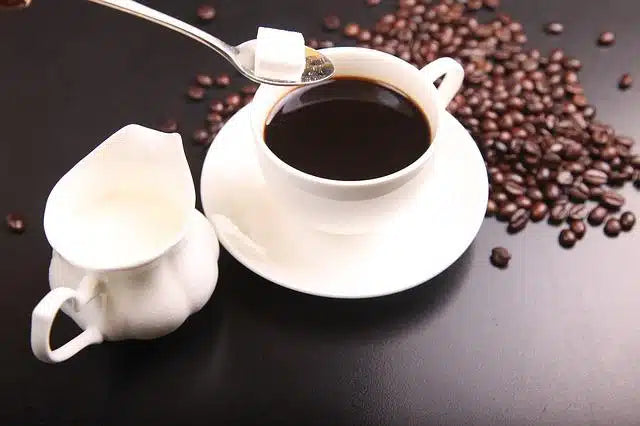
How To Reduce Coffee Bitterness Without Adding Sugar?
Share
TLDR;
To reduce coffee bitterness without adding sugar, adjust your brewing method by using a coarser grind, maintaining an optimal water temperature of 195°F-205°F, and avoiding over-extraction. Additionally, opt for high-quality Arabica beans, try cold brewing, and use natural additives like salt, cinnamon, or vanilla extract to balance bitterness.
Why Does Coffee Taste Bitter?

Bitterness in coffee is primarily caused by caffeine, chlorogenic acids, and over-extraction during brewing. While some bitterness is natural, excessive bitterness often results from improper brewing techniques, stale beans, or using low-quality coffee. Understanding these factors is the first step in creating a smoother, more enjoyable cup.
Choosing the Right Coffee Beans for Less Bitterness

Arabica vs. Robusta: Which Is Less Bitter?
Arabica beans contain less caffeine and have a smoother, more complex flavor compared to Robusta beans, which are known for their higher bitterness. If you want a less bitter cup, opt for 100% Arabica coffee.
Light vs. Dark Roast: Which Should You Choose?
Dark roast coffee often tastes more bitter due to the breakdown of sugars during roasting. If you prefer a smoother taste, go for medium or light roasts, which retain more natural sweetness.
Freshness Matters
Stale beans lose their nuanced flavors and develop a harsh bitterness. Always buy freshly roasted beans and store them in an airtight container away from heat and moisture. Proper storage techniques can also help extend coffee shelf life, ensuring your beans stay fresh and flavorful for longer.
Best Brewing Techniques to Reduce Coffee Bitterness

1. Adjust Your Grind Size
The grind size affects extraction. If your coffee is too bitter, try using a coarser grind, especially for methods like French press and pour-over.
2. Maintain the Right Water Temperature
Brewing with water that is too hot (above 205°F) extracts too many bitter compounds. Aim for a water temperature between 195°F and 205°F.
3. Avoid Over-Extraction
Longer brew times can cause excessive bitterness. Here are optimal brew times for different methods:
- Espresso: 25-30 seconds
- French Press: 4 minutes
- Pour-over: 2.5-4 minutes
- Drip Coffee: 5 minutes
4. Use Filtered Water
Hard water with high mineral content can enhance bitterness. Using filtered water ensures a cleaner, smoother taste.
Natural Additives to Reduce Coffee Bitterness Without Sugar

While many turn to sugar for balance, choosing the best sugar for coffee is its own topic. But if you're avoiding sugar entirely, here are natural alternatives worth trying.
Does Salt Reduce Coffee Bitterness?
Yes. A small pinch of salt can neutralize bitterness by blocking bitter taste receptors on the tongue. Try adding a tiny amount directly to your coffee grounds before brewing.
Cinnamon, Cocoa, and Cardamom for Natural Sweetness
Spices like cinnamon and cardamom add a natural sweetness and complexity to coffee. Unsweetened cocoa powder can enhance coffee's depth without additional bitterness.
Citrus Zest for Brightness
A small amount of orange or lemon zest can brighten the coffee's flavor and reduce bitterness.
Vanilla Extract and Nut Milk for Smoothness
A few drops of vanilla extract or using almond, oat, or coconut milk can help mellow the harshness and add subtle sweetness.
Best Brewing Methods for a Less Bitter Coffee

1. Cold Brew Coffee
Cold brew coffee is brewed using cold water over an extended period (12-24 hours), leading to a less acidic, smoother, and naturally sweeter taste compared to hot-brewed coffee.
2. AeroPress for Controlled Extraction
The AeroPress offers quick brewing with fine control over variables like brew time and pressure, helping to reduce bitterness.
3. French Press vs. Pour-Over: Which One Is Better?
- French Press: Full-bodied, but requires a coarser grind to prevent over-extraction.
- Pour-Over: Allows for precise control over water flow and brewing time, making it ideal for reducing bitterness.
Quick Fixes for Bitter Coffee After Brewing

- Add a splash of milk or plant-based alternatives: This can soften the bitter notes.
- Let your coffee cool slightly: Extreme heat can heighten bitter flavors.
- Pre-wet coffee grounds: This ensures even extraction and reduces harsh flavors.
Common Mistakes That Make Coffee Too Bitter

1. Reheating Coffee
Reheating alters the chemical structure of coffee, making it more bitter. Instead, store extra coffee in a thermos.
2. Using Boiling Water
Boiling water (above 212°F) over-extracts bitter compounds. Always keep it between 195°F-205°F.
3. Using Stale Beans or Pre-Ground Coffee
Pre-ground coffee loses freshness quickly, leading to a stale, bitter taste. Always grind beans just before brewing.
4. Choosing the Wrong Grind Size
A grind size too fine for your brewing method (e.g., using espresso grind for French press) leads to over-extraction and excess bitterness.
Final Thoughts from Milk & Honey Coffee
Reducing coffee bitterness without sugar is all about selecting the right beans, fine-tuning your brewing method, and experimenting with natural flavor enhancers. At Milk & Honey Coffee, we believe that every cup should be smooth, flavorful, and perfectly balanced — whether you're brewing regular or decaf. If you prefer low-caffeine options, understanding the link between Decaf Coffee and Hydration can help you make healthier choices as you perfect your brew. By applying these expert techniques, you can craft the perfect cup every time. Try these tips today and taste the difference for yourself!
